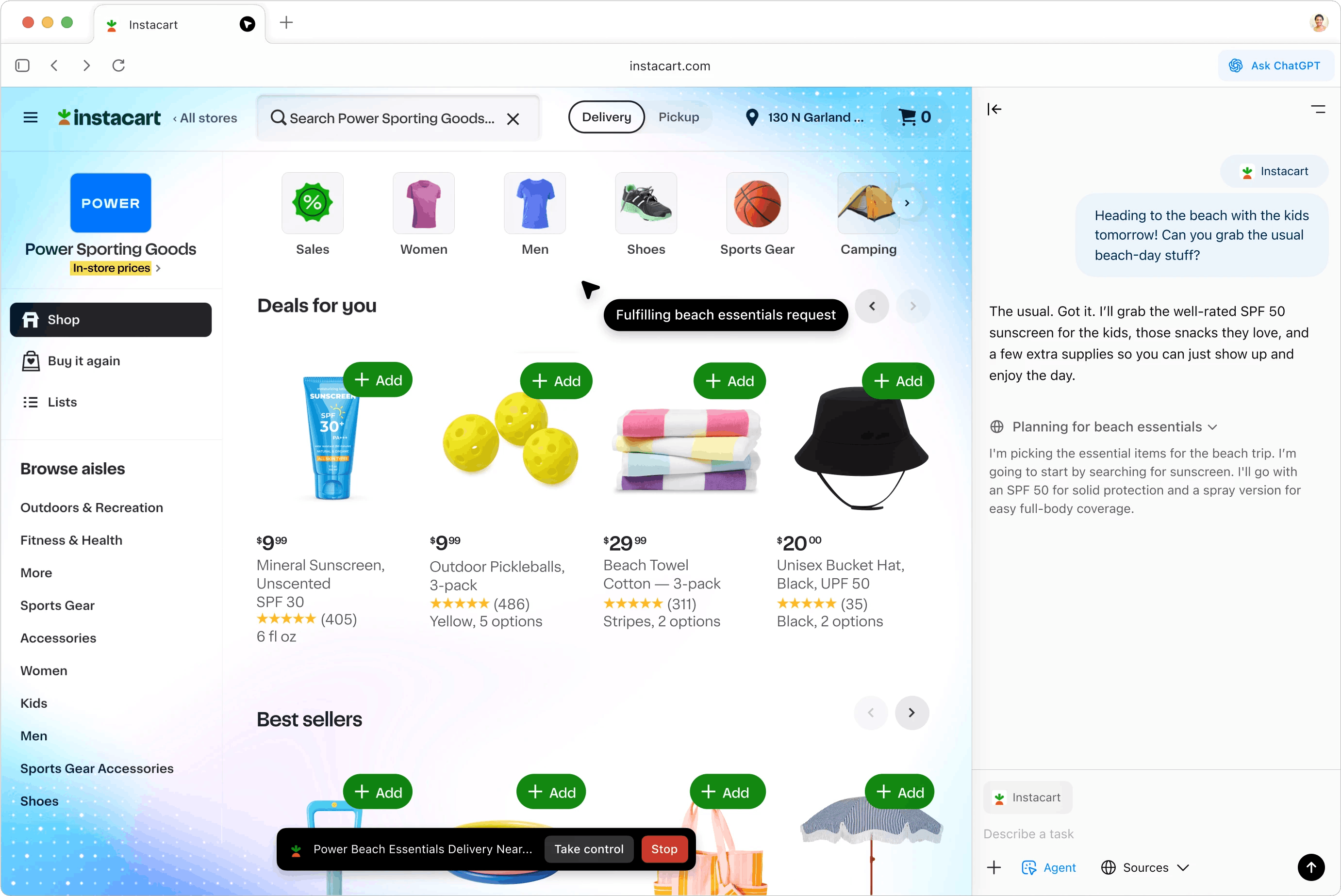Developer Offer
Try ImaginePro API with 50 Free Credits
Build and ship AI-powered visuals with Midjourney, Flux, and more — free credits refresh every month.
OpenAI Challenges Google with New ChatGPT Atlas Browser

While ChatGPT has been a fascinating technology, its direct threat to Google's search dominance has been limited. However, the game may be changing with the introduction of an OpenAI browser, which brings a wealth of user data into the equation.
OpenAI Enters the Browser Wars with ChatGPT Atlas
OpenAI has taken a direct shot at Google by launching its own AI-native web browser, named ChatGPT Atlas. Currently available exclusively for Mac users, this new browser is designed to seamlessly integrate the powerful capabilities of ChatGPT into the core web browsing experience. During a livestream announcement, an OpenAI team member described it as “a new kind of browser for the next era of the web.” This strategic move aims to embed OpenAI's tools more deeply into the daily digital lives of users.
How Atlas Redefines the Browsing Experience
At first glance, Atlas resembles the familiar ChatGPT interface with a central text box. But instead of limiting users to simple search queries or website addresses, it encourages them to ask complex questions. The browser might respond by navigating directly to a relevant website, searching through your open tabs and browsing history, or synthesizing information from across the web to provide a direct answer. This functionality is built on Chromium, the same open-source foundation as Google's Chrome browser.
Google has attempted something similar with its AI overviews in search, but Atlas aims to provide answers more directly, without the traditional page of blue links. A persistent “Ask ChatGPT” button is a key feature, allowing the chatbot to access and understand the content of the current webpage. This enables users to ask specific questions about the information on their screen. However, this feature has limitations; for instance, attempts to query the New York Times homepage were blocked with a message that ChatGPT could not access the site's content, likely due to the ongoing legal disputes between the two companies.
A Direct Challenge to Google's Dominance
Google's Chrome browser is the cornerstone of its massive online advertising empire, which generated an astounding $54.2 billion in the last quarter alone. If OpenAI can capture even a small fraction of this market with Atlas, it would provide a significant revenue stream to help fund its ambitious and costly infrastructure projects.
Data Privacy and the Future of Web Automation
The launch of Atlas serves as a reminder that your web browsing activity can be used to train future AI models. While the browser allows users to opt out of this data collection, the setting is enabled by default for standard users (Business and Enterprise subscribers are opted out by default). For private sessions, an “incognito mode” is available that doesn't save search or site history.
Beyond simple browsing, Atlas has a deep memory that integrates your past searches, visited sites, and your entire ChatGPT history to personalize its responses, though this can also be disabled. A groundbreaking preview feature is the built-in “Agent mode,” which can take control of the browser to autonomously complete tasks. A live demo showcased the agent visiting a supermarket website and adding all the necessary ingredients for a recipe to the shopping cart, a task it completed in about two minutes.
Market Reacts to OpenAI's Bold Move
The financial markets reacted swiftly to the news. Shares of Google experienced a sharp downturn ahead of the announcement, falling by as much as 4%. Following the livestream, the stock recovered some of its losses but still closed the day down by approximately 1.7%, signaling investor concern over this new competitor.
Compare Plans & Pricing
Find the plan that matches your workload and unlock full access to ImaginePro.
| Plan | Price | Highlights |
|---|---|---|
| Standard | $8 / month |
|
| Premium | $20 / month |
|
Need custom terms? Talk to us to tailor credits, rate limits, or deployment options.
View All Pricing Details

